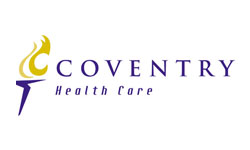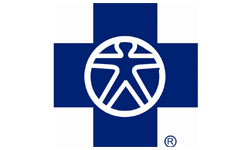

Insurance Options
Many insurance companies provide coverage for bariatric surgery. Obtaining approval for surgery can often be a very time consuming and tedious process. The need for surgery and the decision of coverage by insurance usually depends upon determination that surgery is medically necessary to reduce health risks and improve the quality of life for the patient.
In determining if the procedure is medically necessary most insurance companies require past medical records pertaining to obesity disease, medically related conditions (diabetes, high blood pressure, sleep apnea, etc.) and diet and exercise programs when requesting approval for weight-loss surgery in order to prove “medical necessity.” Many insurance plans now require a physician managed diet and exercise program. This usually consists of well documented monthly visits to your doctor varying from 6-12 months. Be sure to ask what your insurance requires.
We recommend that you obtain copies of your medical records from your primary care physician and any other healthcare professionals who have treated your obesity and comorbidities before your first visit. We strongly encourage you to begin this process early to expedite your approval process. Most hospitals and doctor’s offices will require you to sign a release form to have your medical records sent to us. We can provide you with a form if needed.
Your insurance company may also require cardiology, pulmonary and endocrinology evaluations. We will do our best to assist you in this preliminary process, however due to the high volume of requests for weight-loss surgery; the Illinois Bariatric Center cannot research your particular insurance plan. It is your responsibility to determine what is required for your plan. You will be responsible for any costs not covered.
We will make every attempt to assist you in dealing with your insurance carrier. However, we ask that you assist us and cooperate with us fully to facilitate the process. It is often lengthy and burdensome and your assistance and patience is essential if we are to be successful.
Insurance Verification
To determine if your insurance policy covers obesity (or “bariatric”) surgery, refer to the insurance policy package that you have received after paying your first premium or provided through a plan offered by your employer. If you do not have one, call the company and obtain a policy package as soon as possible. You may also call the customer service number (typically located on the back of your insurance card) ask if the Lap-Band (CPT code 43770) is a covered benefit under your plan. After determining that it is a covered benefit, we recommend that you ask about the necessary criteria that must be met in order to be approved or meet medical necessity.
Typically, there are two sections that describe the extent and limits of coverage. The first is usually called “What Is Covered” or “Covered Expenses.” These are the healthcare benefits for which the company will pay. The other section is “What Is Not Covered” or “When the Plan Does Not Pay Benefits.” In this section, look for any statement that the company excludes coverage for weight control, for the treatment of obesity, for the surgery for weight control, or for the complications of the surgery for weight control. Some policies will outright exclude bariatric surgeries.
Others may have certain parameters around which bariatric procedures they cover and how much of the costs they cover. Look for statements such as, “Surgery for the treatment of obesity is covered when deemed medically necessary,” or “Surgery for the treatment of obesity is (specifically) excluded except when medically necessary.”
Below we list companies that have been known to either partially or completely cover LAP-BAND System surgery in Illinois. Please note that this list in no way insures that you will be covered or that we are in their network — it is provided for informational purposes only.








Submission Requirements
A Letter of Medical Necessity and weight-loss history are necessary to obtain prior authorization for obesity surgery in most cases. A Letter of Medical Necessity states why significant weight loss is medically necessary for a patient and usually includes the following information:
Patient’s Weight and BMI
BMI should be more than 40 or at least 30 with associated medical problems
List of medical problems associated with obesity
such as type 2 diabetes, sleep apnea, hypertension, etc.
Number of years patient has been overweight
Usually should be at least five or more
Number of types of failed weight-loss programs attempted in the past
If you can document all your weight-loss attempts (self-controlled or medically supervised) and their results, you often can substantially increase your chances of getting insurance coverage for the LAP-BAND procedure. You should include any commercial diets or medical records of your weight-loss efforts.
We will help you with this Letter or Medical Necessity and will form it for you so as to best increase your chances of successful submisison. Please help us though by gathering as much of the information before we see you for your initial consultation. See the Forms page for helpful ways of organizing this information. And you can call 1-800-LAP-BAND (527-2263) and LAP-BAND customer service will verify your benefits for you. Just be sure to mention Dr. Sidney Rohrscheib’s name!
Appeals
If coverage has been denied upon the initial prior authorization request, you can appeal by addressing the specific reasons why your request has been denied. We will work with you to try and appeal any denial, but there are no guarantees.
When all appeals fail and insurance reimbursement is not available, patient financing is another alternative you may consider. Please ask us about available patient financing programs during the patient seminar or your office visit. We have access to a program sponsored by which may be very useful to you and may be able to suggest other means of financing to Apollo.
